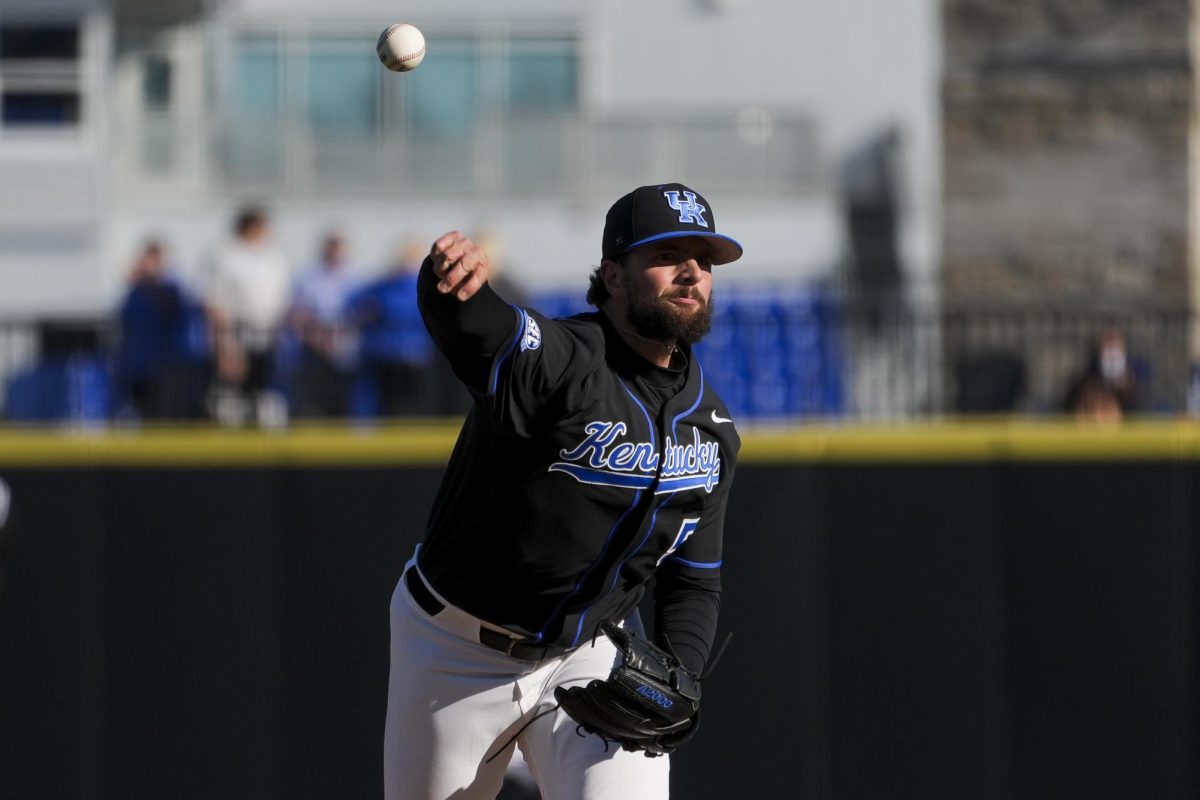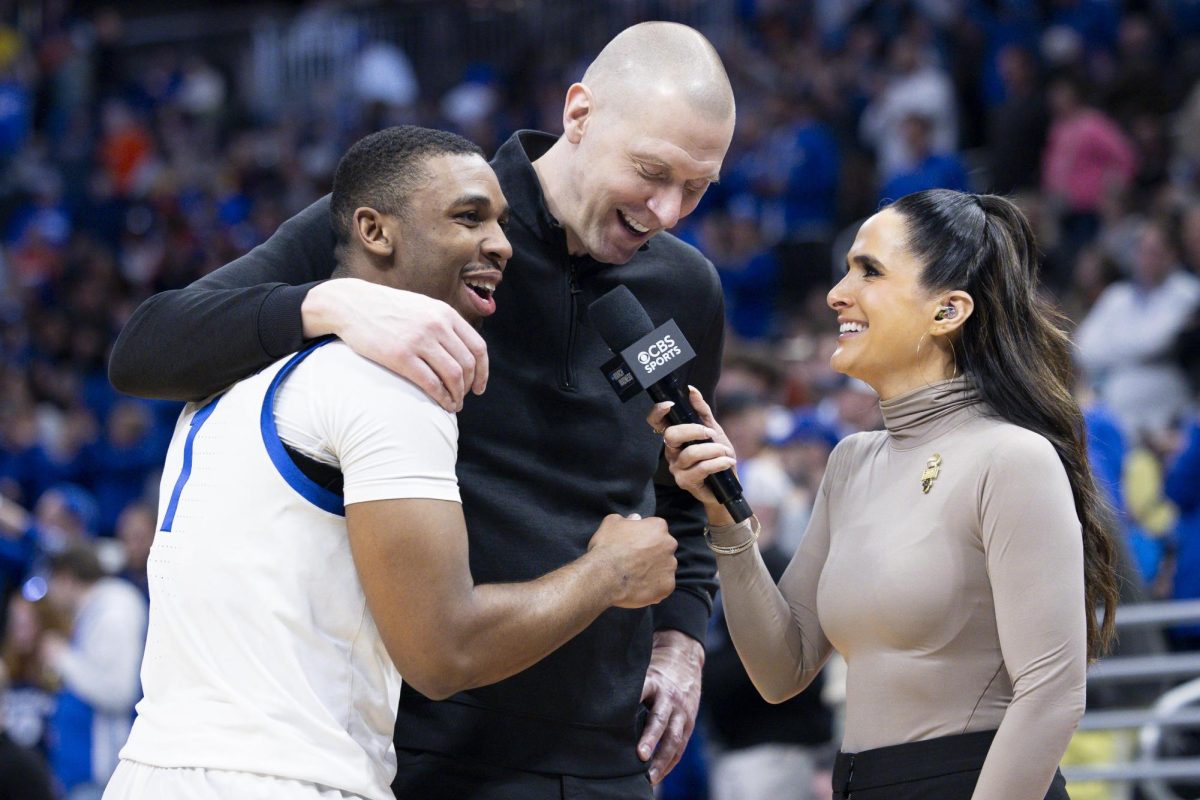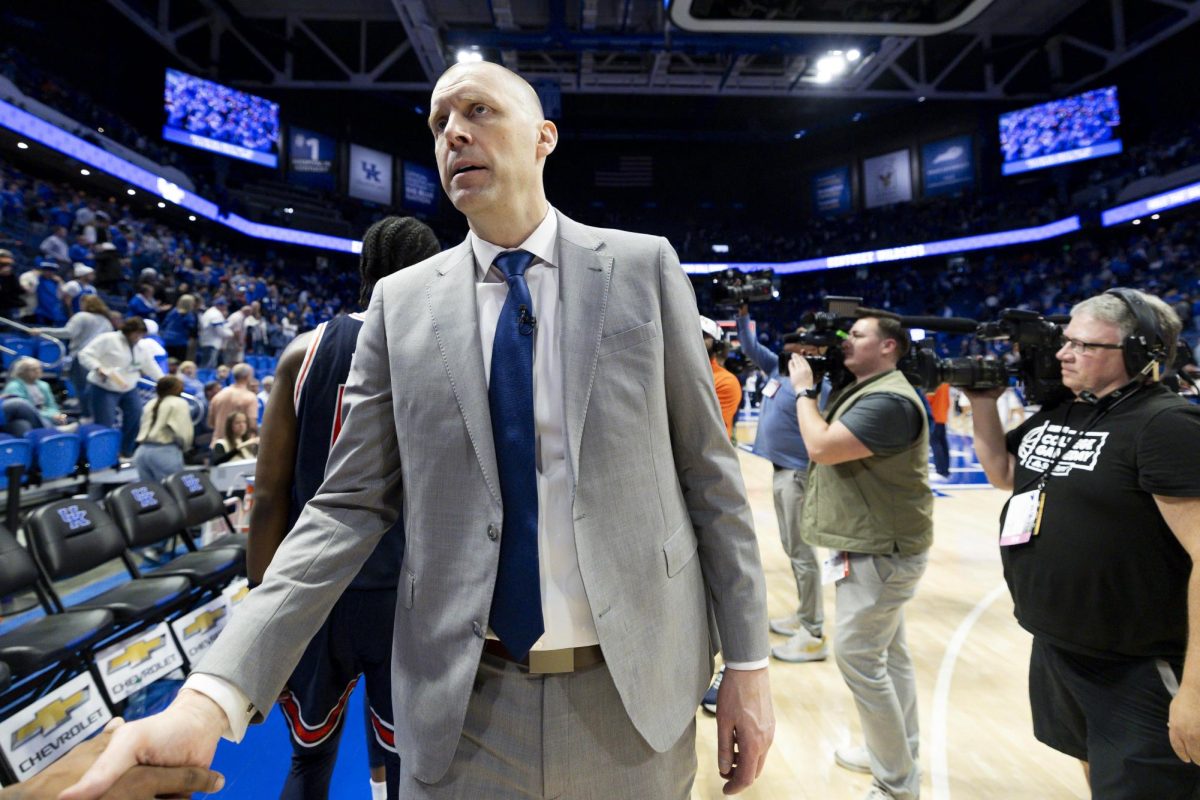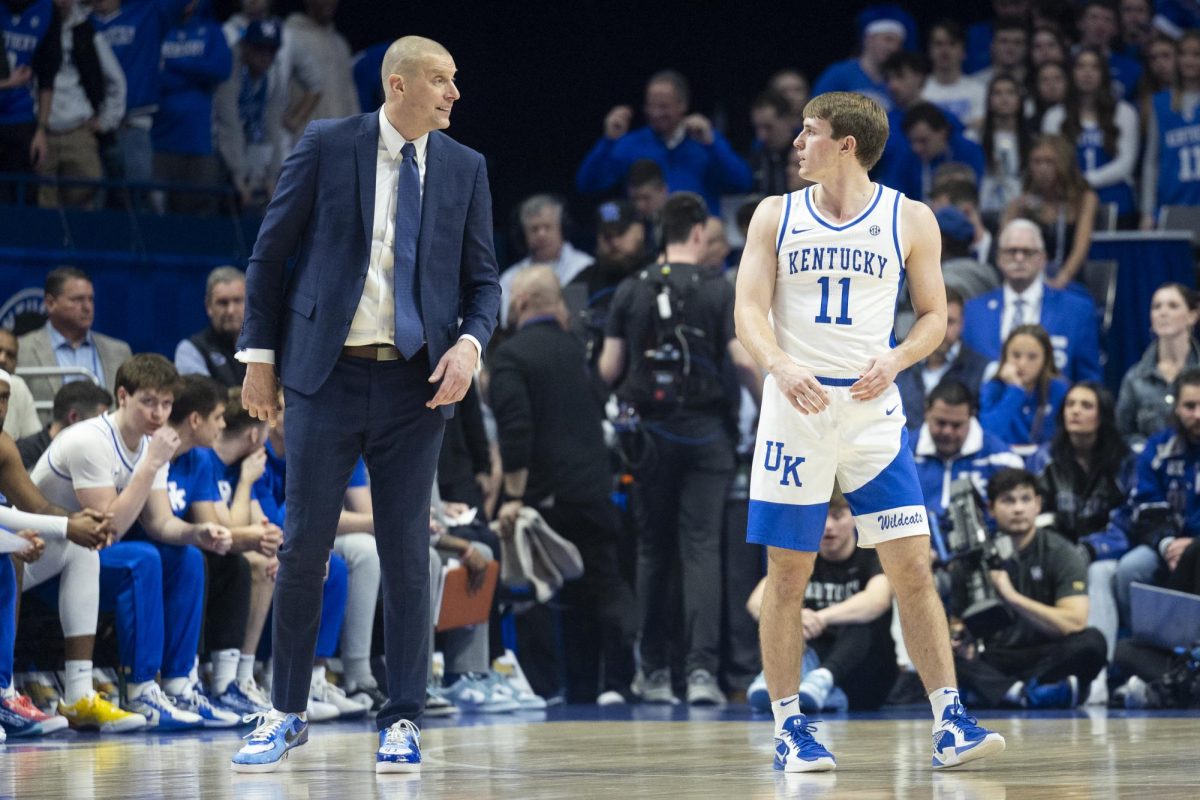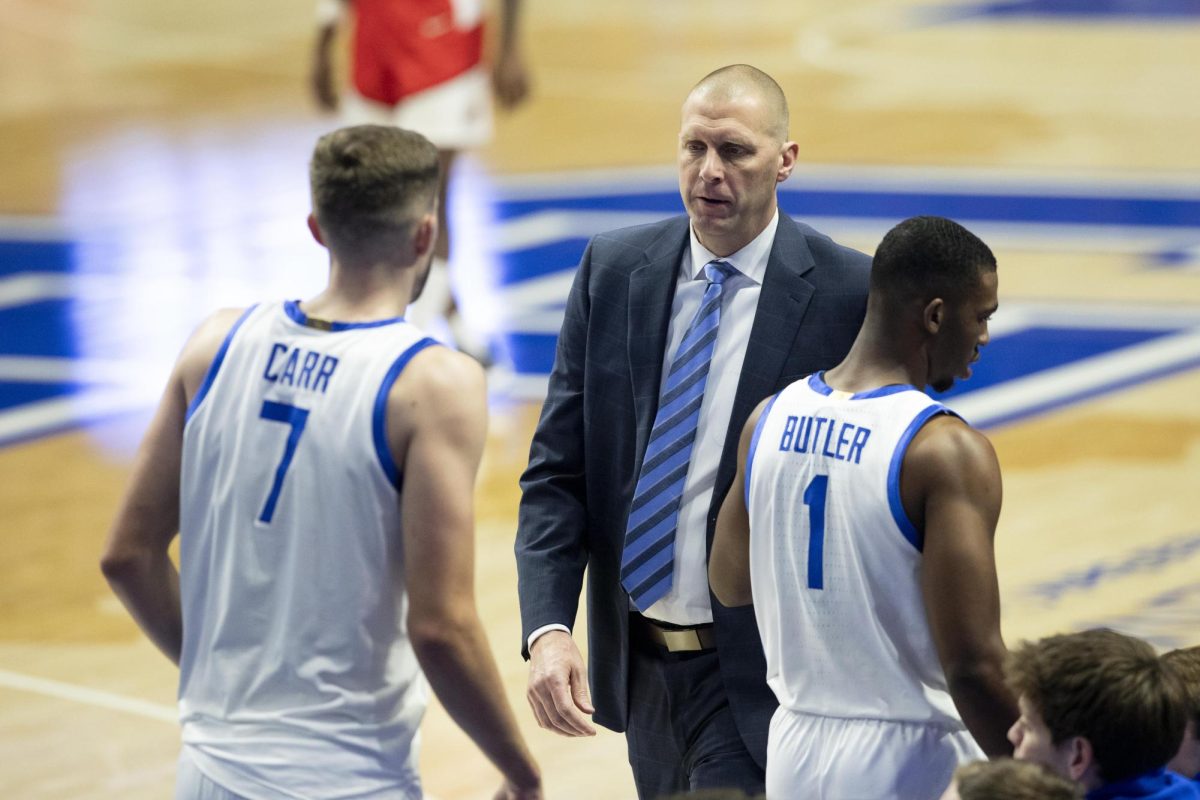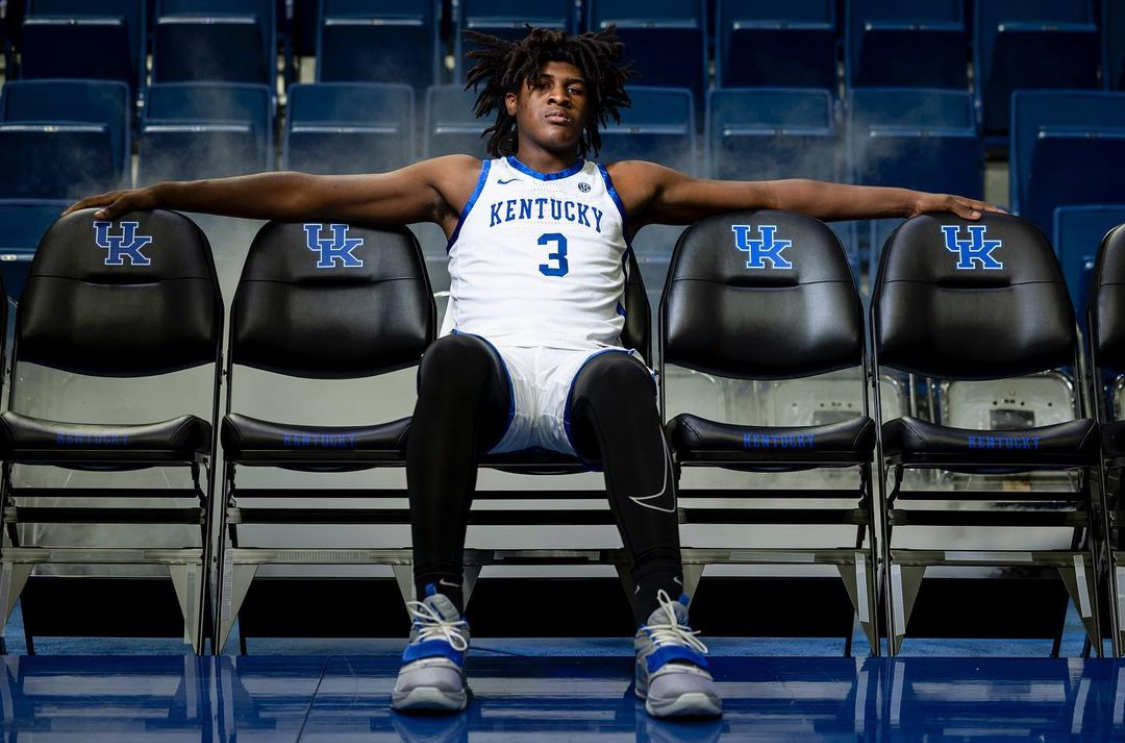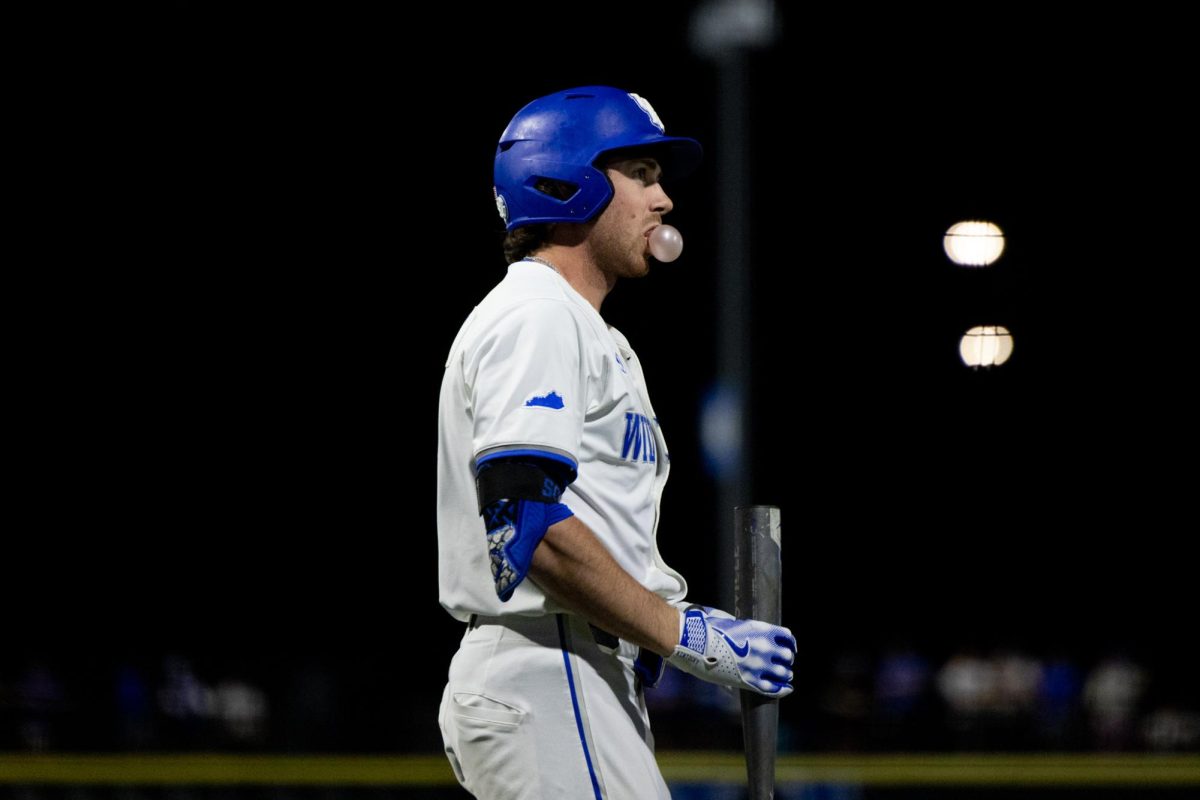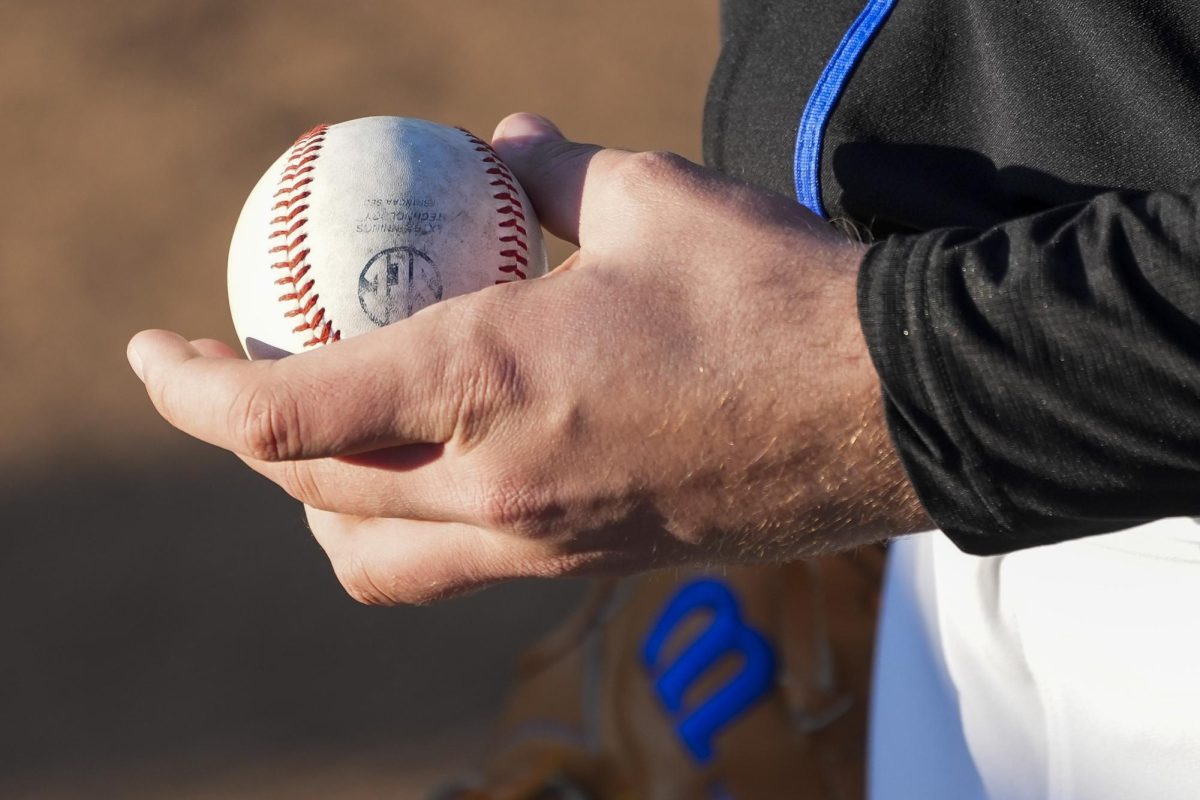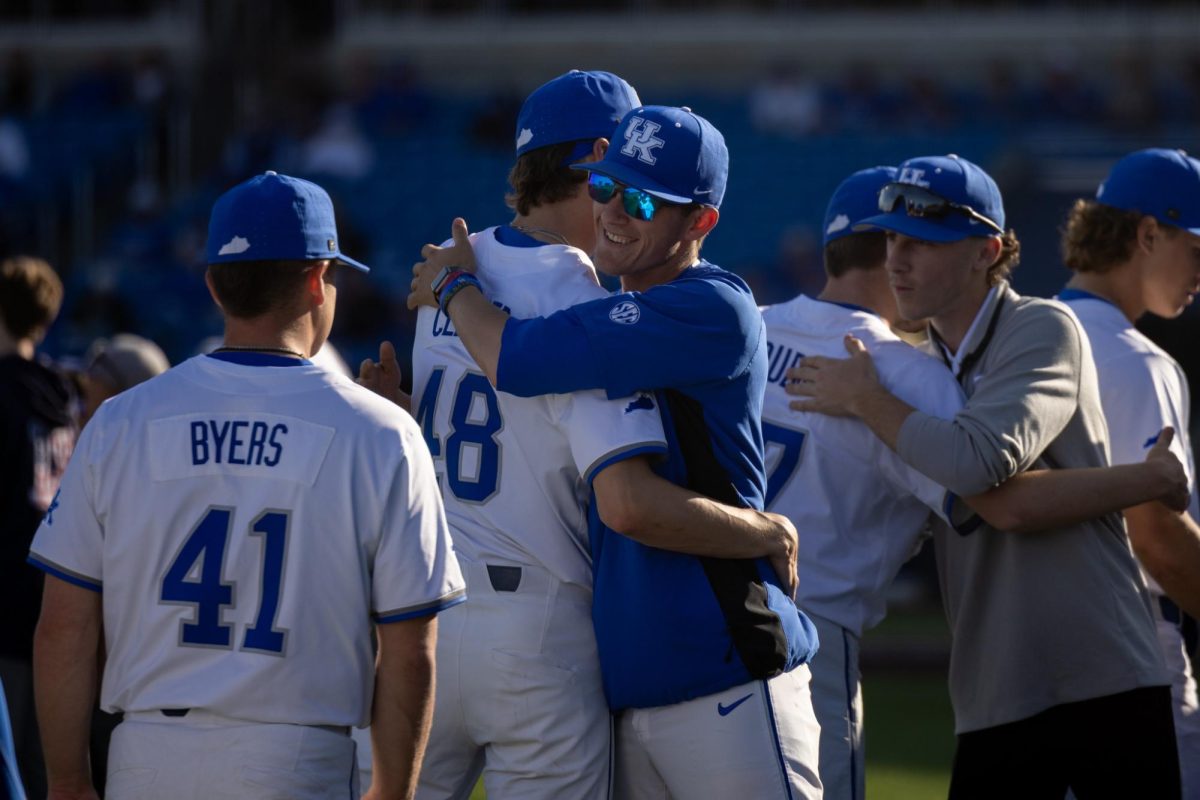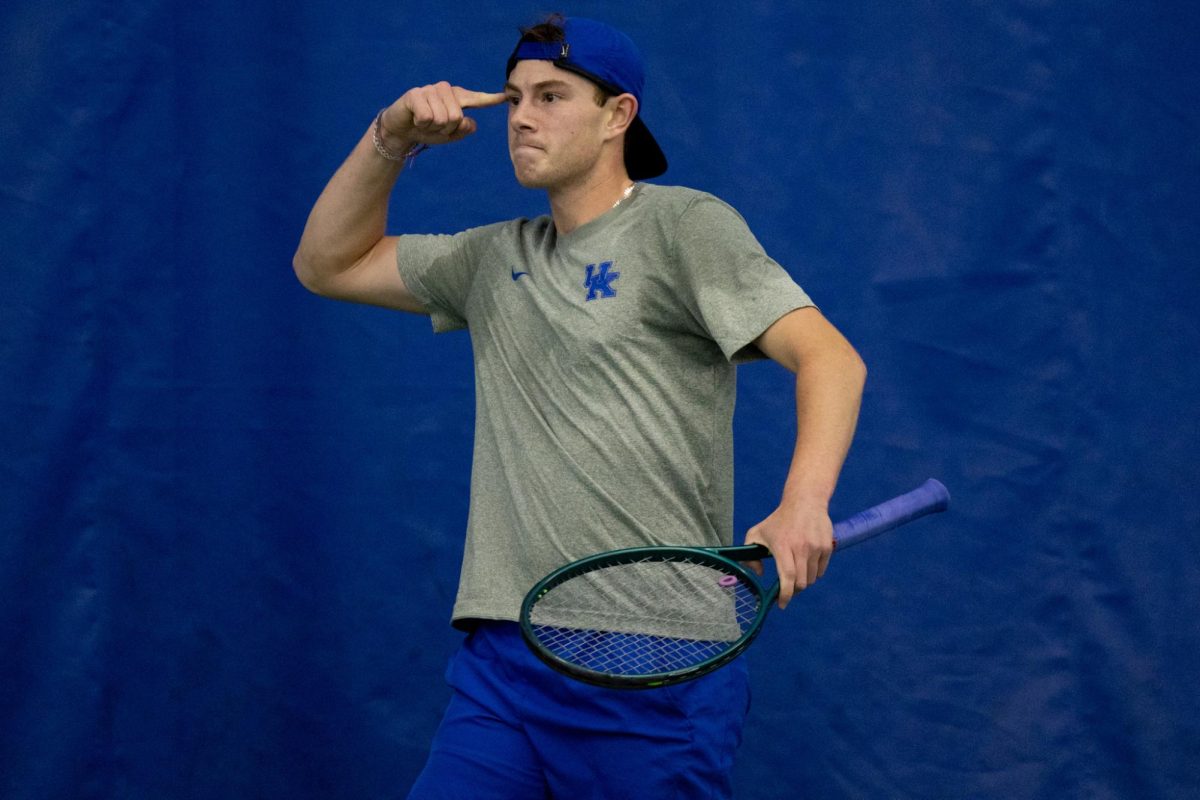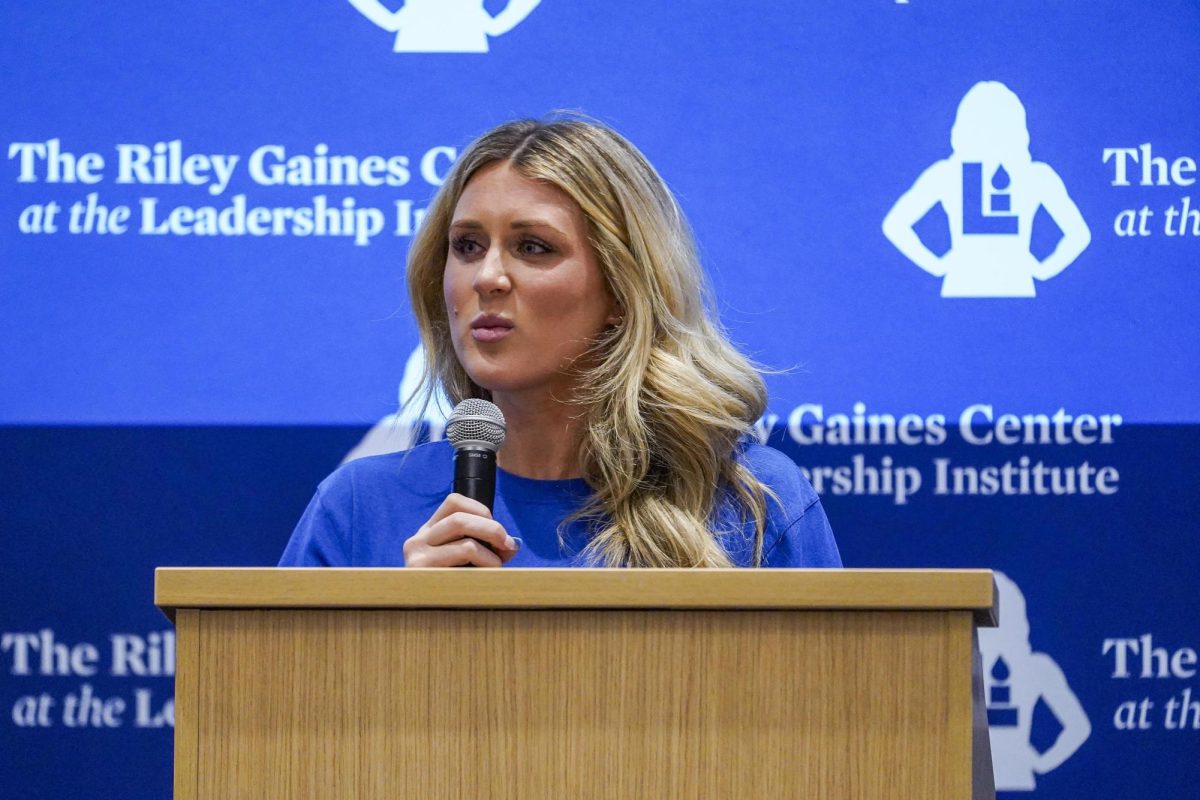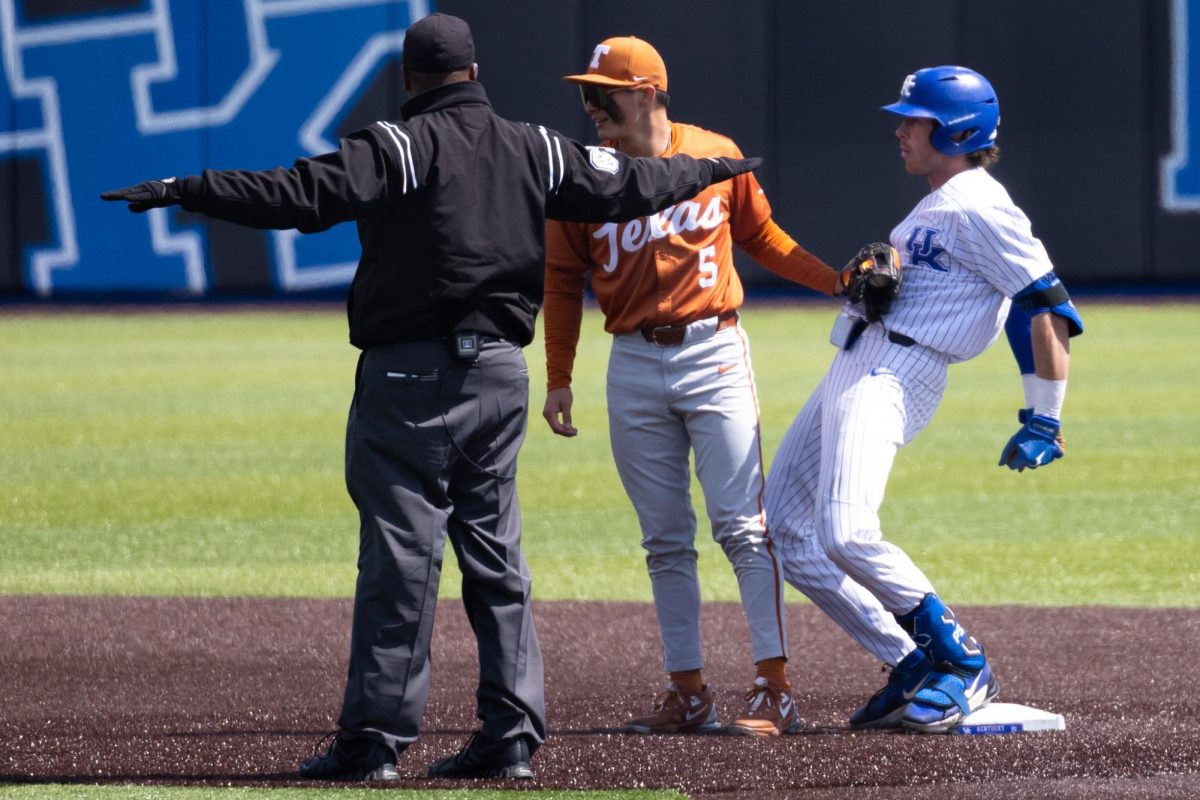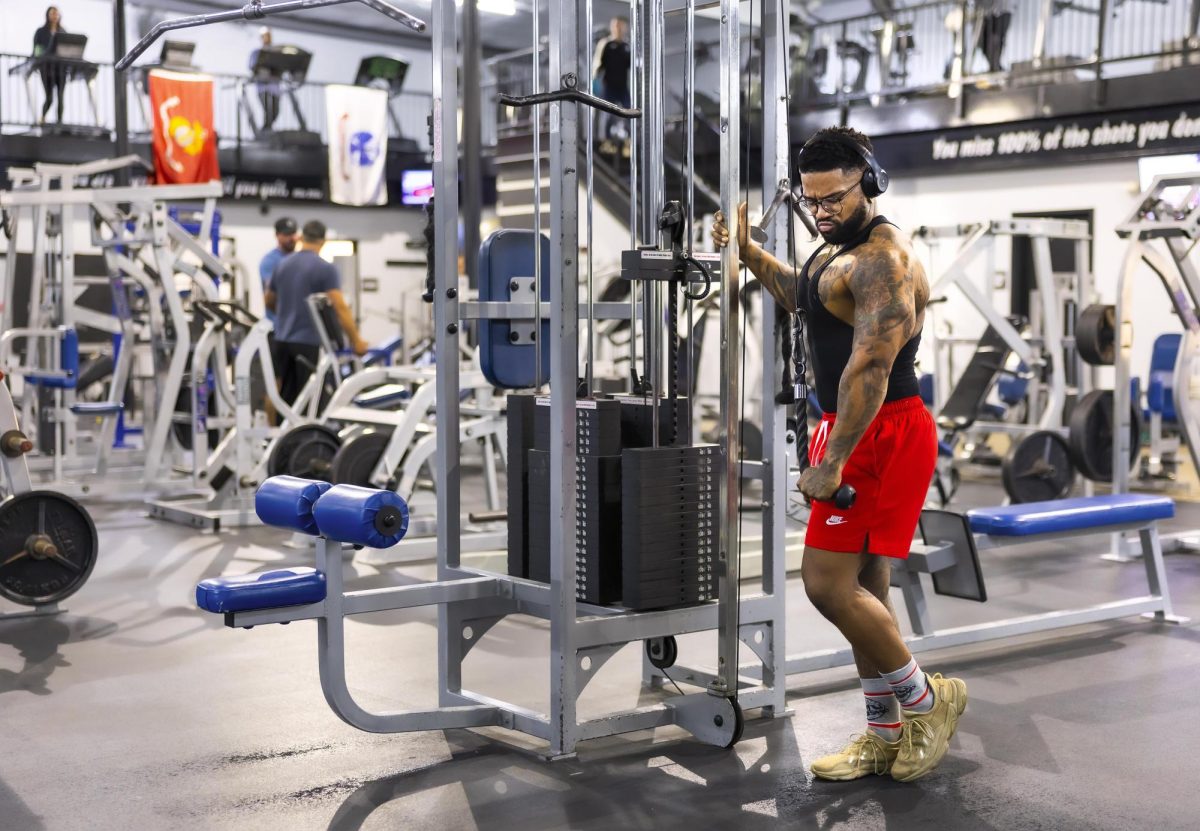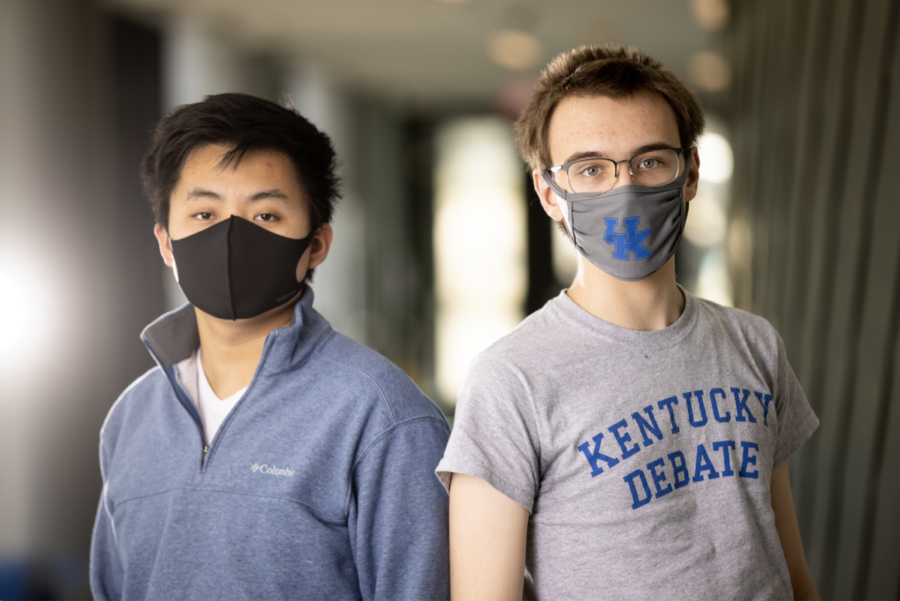‘Sky’s the limit.’ Freshman debate team clinches first round bid to national tournament
Jordan Di (left) and David Griffith (right) pose for a portrait on Thursday, March 11, 2021, at the Gatton Student Center in Lexington, Kentucky.
March 19, 2021
Kentucky Intercollegiate Debate team members David Griffith and Jordan Di are a little ahead of schedule.
As of February 2021, the freshman pair have punched their ticket to the 75th annual National Debate Tournament (NDT), to be held virtually from March 25-31. Griffith and Di are members of a very short list as only the eighth freshman team to be ranked in the top 16 and receive a first-round bid in the tournament’s history.
One other UK freshman team has also accomplished this feat. Dan Bannister and Anthony Trufanov, who received automatic bids during their 2016 freshman year, went on to win the national tournament in 2019 during their senior year.
One of their coaches, David Arnett, said he wasn’t surprised at Griffith and Di’s early level of achievement. He said that typically, the biggest obstacle talented high school debaters face during their college transition is discipline— “the grit to dig in every day and do things that maybe aren’t super fun.”
But that isn’t the case with Griffith and Di, who are already adapting their daily habits to maximize their chances of success. With UK’s reputation as a debate powerhouse on par with Harvard, Dartmouth and Northwestern, they have a strong alumni base and century-old tradition of success behind them.
Even during a pandemic, the pair was able to hit the ground running as soon as they stepped on campus last fall. They knew each other from the national high school debate circuit, where they once competed head-to-head (Di won, Griffith said). Ever since, they have been friends, even sometimes sharing their research during high school. Now, they are college roommates and debate partners.
Griffith said that he thinks their prior working relationship, the dedication of their coaching staff, hard work and a little bit of luck added up to their automatic invite to the NDT. While their top-16 ranking was never a given, it was a goal the team aspired to from the beginning of the year.
Griffith and Di are both political science majors, which they said helps them parse through arguments, most of which are rooted in political science research and literature. Di is also pursuing a statistics minor, which gives him an extra edge in interpreting these studies.
The pair also possesses different, complementary debating strengths. Griffith, for example, is better at thinking on his feet under pressure.
“I can wriggle my way out of tough situations, like if another team is prepared more than we have or if they have a new argument that we’re not ready to answer,” he said.
Di, on the other hand, has a broader base of knowledge, garnered from extensive research. Griffith said he thinks Di does more research than any other freshman in the country.
“He is always working and is very good at preparing for every possible scenario and has foresight that I don’t have,” Griffith said.
Di said one of the biggest differences between high school and college for him is the ability to dive deeper into certain areas and investigate nuances at a level he never has before. He uses sources like Google Scholar and UK Libraries’ databases for most of his research, he said.
In college, and a growing number of high schools, debate is much more than a casual extracurricular activity. It’s a sport, and just like an athletic team, success requires hours and hours of dedication to the craft.
Di and Griffith went to high school in different areas—the Atlanta suburbs and Chicago, respectively—but their experiences were similar. Both regions are home to several schools who are consistently competitive within the national high school circuit.
However, Di and Griffith had to face some challenges to get to where they are today. Griffith’s school lacked the level of coaching and team size that most nearby schools had, and his freshman year was the program’s first year under a new coach. As such, he had to be self-sufficient to achieve at a high level.
“It was pretty much debate research over everything,” Griffith said. “Like, including homework and schoolwork, and maybe that was not a very good decision, but it was really just a 24/7 grind.”
At Di’s high school, the debate program was completely shuttered, so he transferred to a new school his senior year. There, he was able to take advantage of the better infrastructure to get more tournament experience and rise in the national rankings.
Arnett said that UK is known for providing the dual opportunity to succeed in both academics and debate. However, that doesn’t diminish the level of dedication and preparation debaters need to perform well.
“The kind of debate that we do is not just so much getting up and kind of making stuff up,” Arnett said. “It really is questions of policy that get researched throughout the year.”
Arnett said that as soon as the year’s topic comes out in early summer, the entire team begins months of preparation for the first tournament. Each year, debate teams across the nation tackle one current politically relevant question, called a resolution. Past resolutions have asked debaters to argue whether or not the U.S. government should reduce the size of its nuclear weapons arsenal (2009-10), cancel all Allied War debts (1932-33) or establish national health insurance (2017-18), for example.
This year’s resolution is that the United States should reduce its alliance commitments with NATO, South Korea, Japan or the Philippines. In some rounds, teams will be responsible for affirming, or supporting, this resolution, while they will negate it in others.
Like any other college sport, debate has a regular season. In a normal year, teams travel across the country for multi-day tournaments that run from Friday or Saturday to Monday and that last up to 12 to 14 hours.
Depending on the size of the tournament, there are six or eight preliminary rounds in which teams randomly alternate between affirming and negating the resolution. At the end of the preliminary rounds, the top 16 or 32 teams, based on preliminary round winning records, are chosen for the bracket-style elimination round. During this single elimination tournament, teams flip a coin to choose which side of the resolution they wish to argue.
Even though everyone debates the same topic, it doesn’t get boring or repetitive, Griffith said.
“There are a variety of different ways that people interpret the resolution, so there’s a lot of room for, like, what you’re really debating about and no two debates are really the same,” he said.
Di said that while not travelling to competitions during the pandemic saves time, it can also make long tournaments even more draining than usual.
“You’re on Zoom for basically 12 hours during the day, already exhausted doing school that way,” Di said. “And then when you’re doing something like debate where it’s like you got to basically almost always be thinking and talking and really getting through complex things, Zoom fatigue really hits.”
Another major loss of virtual debate that everyone is missing, Griffith said, is the opportunity to socialize with teammates, as well as friends and acquaintances from other schools. Arnett said that this aspect of the pandemic has been difficult from a coaching standpoint too, especially with a young team of mostly freshmen and sophomores who haven’t built strong relationships yet.
“So much about the team and kind of the secret of our success is the informal time together that we’re missing so much,” he said. “Just like hanging out in the office, socially, but also kicking around ideas, is what we’ve lost and it really has been important to building our culture.”
To counteract this, the team has more scheduled and organized meeting time this year. Di said that even though they are physically separated, the team is still united around their primary goal of making the whole team as good as it can possibly be. The team has a saying at tournaments—“none of us are done until the last team is done”—which reflects the idea that while debate consists of individual competitions, one pair’s achievement represents the whole team.
“This really is a collective effort,” Arnett said. “Two people, no matter how good they are, cannot get it done by themselves. There’s too many arguments to research, it’s too complicated when you’re debating Harvard or Dartmouth or whatever and their machine.”
Griffith and Di aren’t sure where they’ll end up placing at the NDT later this month, but they hope to make it to the elimination rounds by placing in the top 30 of the 78 NDT qualifying teams after the preliminary rounds. Arnett said he isn’t focused on winning or losing, but rather the process. He compared debate to ice skating, where judges’ scoring can be more of an art than a science in some ways.
“All you can do is maximize your chances of winning and put yourself in a good situation and hope and believe that if you do all those things, it will in time work out,” he said. “Hopefully, the sky’s the limit.”





































